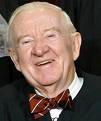The fourth-longest-serving U. S. Supreme Court justice, John Paul Stevens, has been extraordinarily influential as the leader of the progressive wing of the court and as a canny builder of coalitions among the justices, according to Scott Moss, a law professor and expert in constitutional law at the University of Colorado at Boulder.
“Initially seen as a center-right justice because he was a Republican appointee and one of the decisive votes to bring back the death penalty, Justice Stevens now is seen as one of the two most liberal justices, ” said Moss. “But Justice Stevens has changed relatively few of his views over the years. ”
According to Moss:
The main reason Stevens is seen as having moved left is that he stayed in place while the court moved to the right, as it came to be dominated by an increasingly conservative group of appointees by Presidents Reagan, George H. W. Bush and George W. Bush, said Moss.
Stevens was arguably the strictest justice in limiting presidential power, but that viewpoint cut across partisan lines. Justice Stevens wrote the decision denying President Clinton the line-item veto.
Stevens and Justice Scalia, far apart ideologically, shared the narrowest view of President George W. Bush’s power to detain citizens in the war on terror, “illustrating how these decisions defy easy labeling, ” Moss said.
The conventional wisdom is too simplistic in thinking that President Obama’s replacement of Stevens is just a swap of one liberal with another, Moss said. Many issues that the court decides, and on which Stevens was a key vote, are not left-versus-right at all.
“The stakes of this nomination are high for President Obama, because if a nominee is not confirmed by the fall, the next Congress may be less heavily Democratic, and the bloodiest confirmation hearings, from Bork to Thomas, always have come when the president does not control a substantial Senate majority, ” he said
Moss can be reached at 720-839-2920 or scott. moss@colorado.edu. Last year Moss published an article discussing how President Obama might shape the federal courts over the coming years titled “The Courts Under Obama. ” His article can be found at http://law.du.edu/documents/denver-university-law-review/Moss.pdf.
 Print This Post
Print This Post









